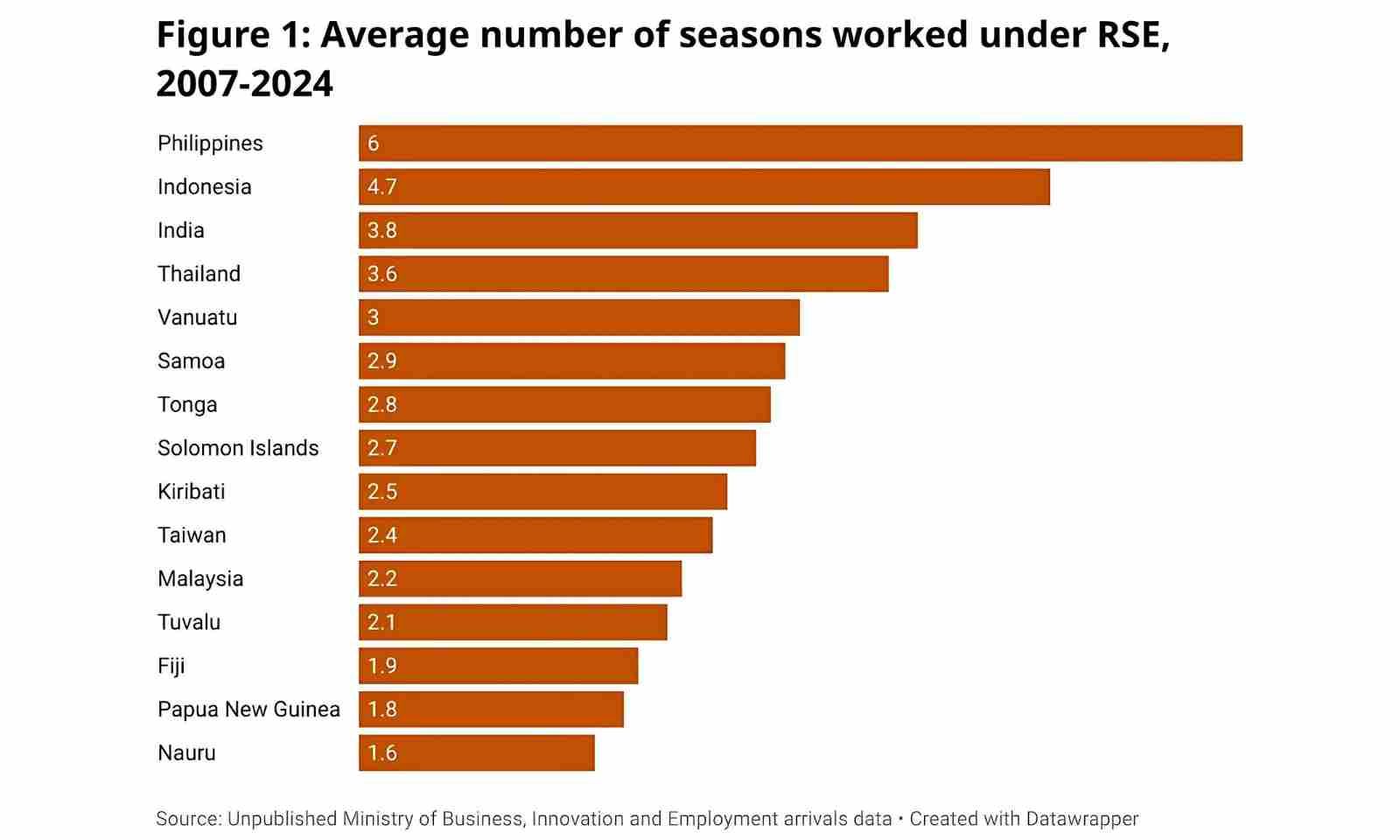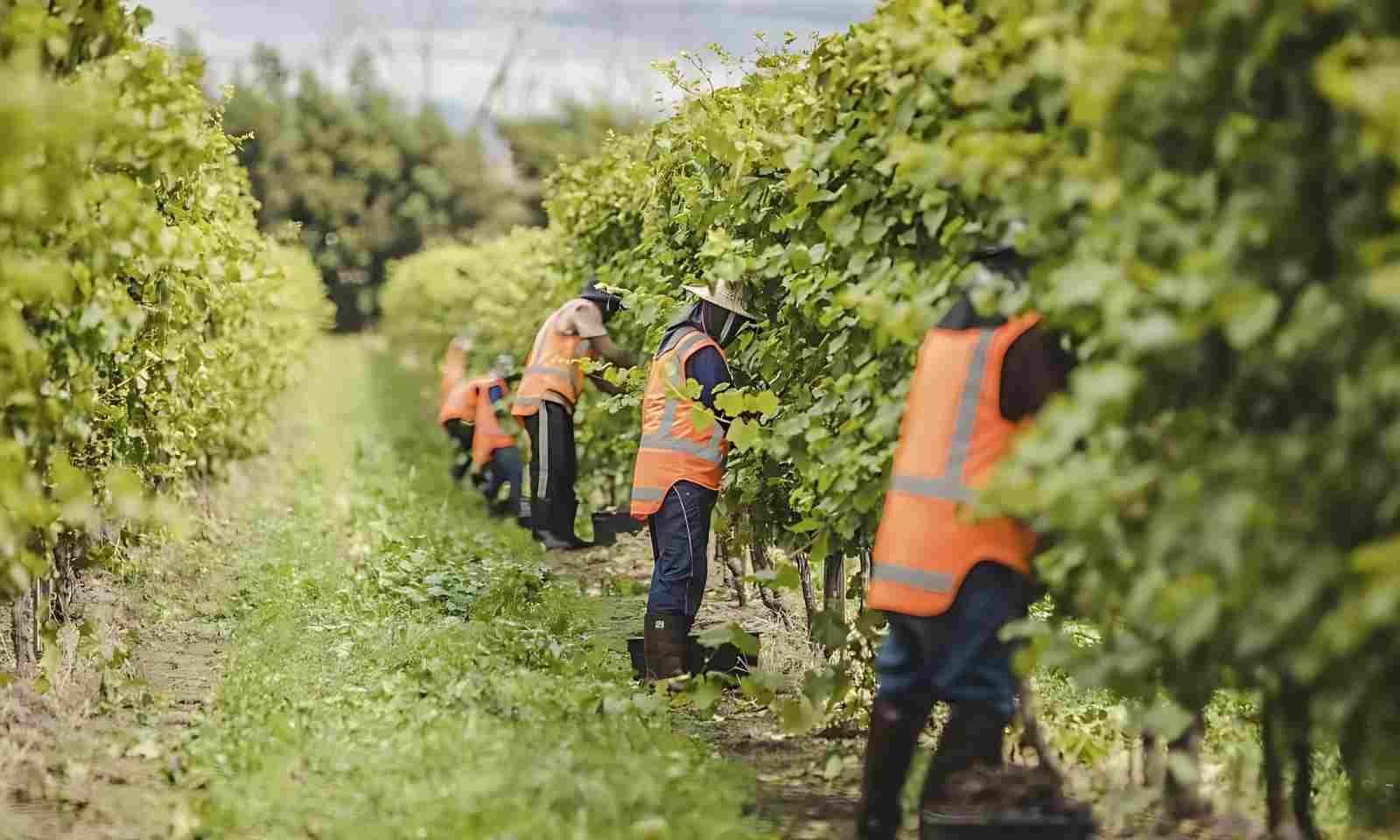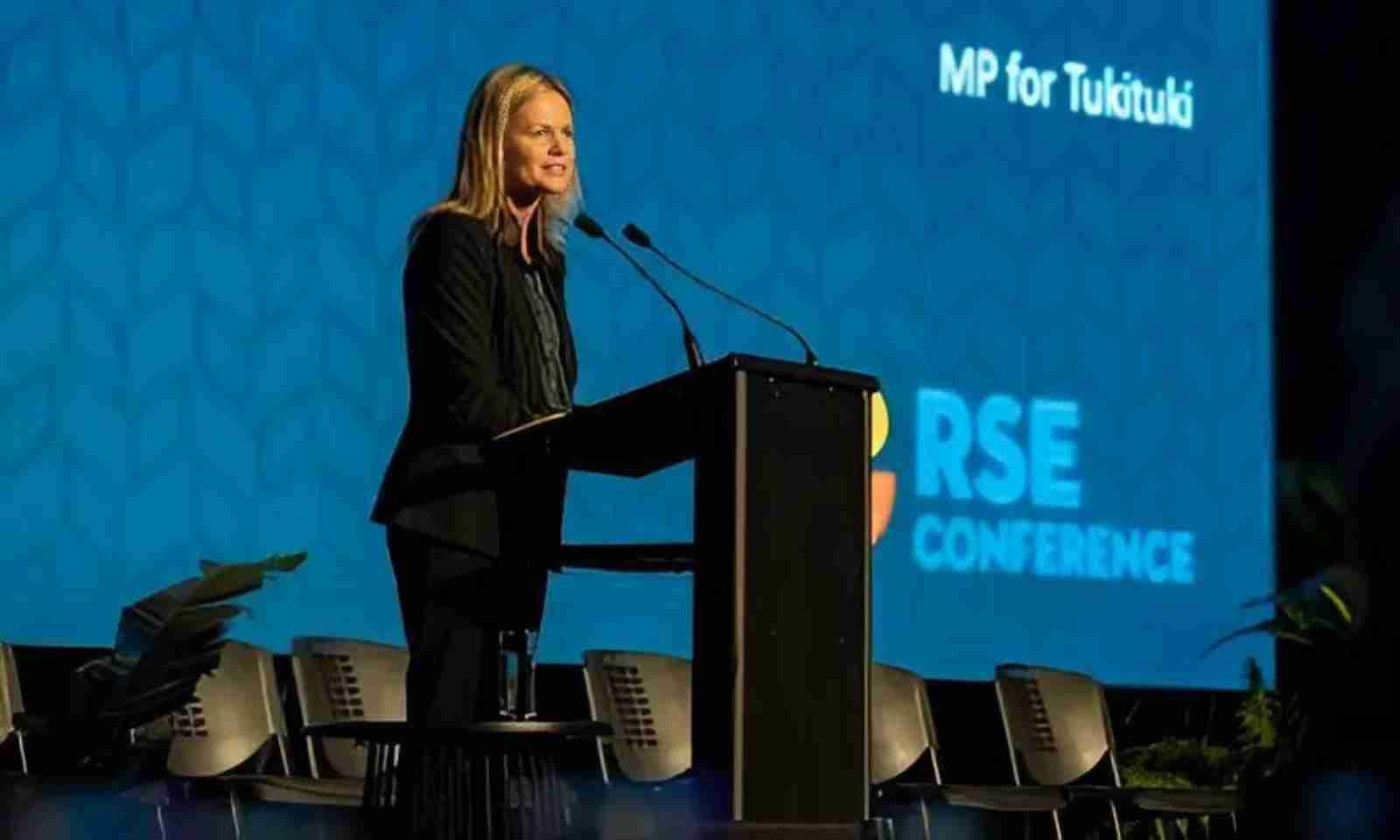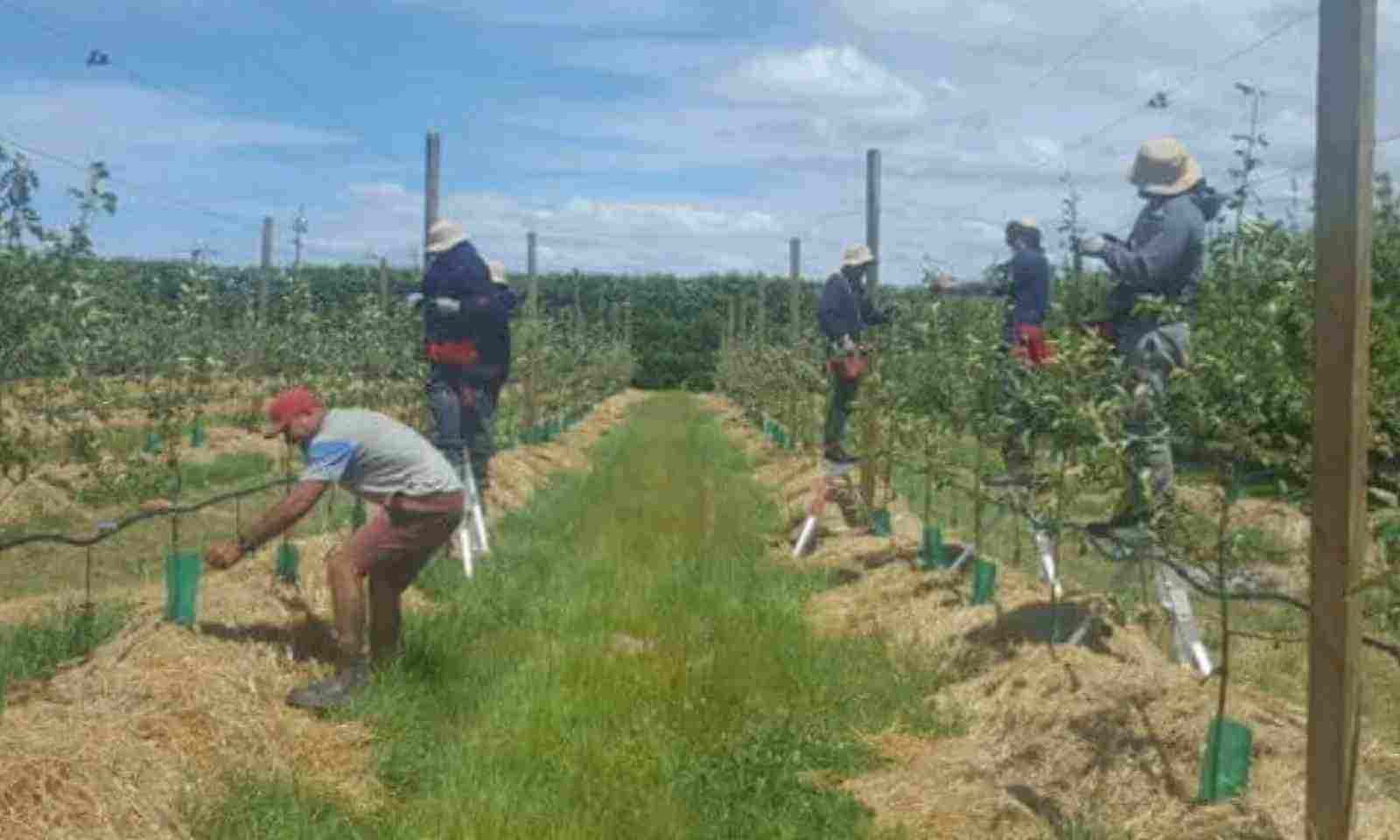

Employers and workers picking kiwifruit in New Zealand's Bay of Plenty.
Photo/Facebook/baykiwifruitcontracting
RSE changes: The winners and losers
The Government's revised policy settings of the Recognised Seasonal Employers' scheme were the talking points at this year's RSE conference.


Japanese sister city reconnects with Manukau after 20 years




Japanese sister city reconnects with Manukau after 20 years


Changes to the Recognised Seasonal Employers Scheme will have a "perverse impact" on workers, researcher Dr Richard Bedford says.
The Government's revised policy settings of the scheme announced in early September were the talking points at the RSE conference in August.

The meeting was attended by industry stakeholders including employers, government officials, and representatives from the Pacific Island nations.
The changes include lifting the pause on accommodation cost increases and allowing a capped increase to be applied; allowing employers to average out RSE workers’ minimum 30 hours a week over four weeks; and, adjusting the application of the 10 per cent above the minimum wage requirement, so it applies to only experienced workers.
Bedford, Emeritus Professor at the University of Waikato and the Auckland University of Technology says there were nine changes made - six of them related to the employers and three to workers.

From left, Sāmoan team lead Samuelu Laki, Dr Richard Bedford, and his daughter Charlotte Bedford, a researcher. They were at the RSE conference in Apia. Photo/supplied
But he told Pacific Mornings' William Terite that some of the changes relating to the employers had a "very profound impact" on workers.
For the Pacific countries, Bedford says the three changes that directly affect workers' take-home pay - removing the requirement for employers to pay RSE workers 10 per cent above the minimum wage, removing the guaranteed payment for 30 hours of work per week, and lifting the freeze on worker accommodation charges - are less welcome.
"Unfortunately, the winners and losers binary when you put it across all the changes, I don't think is very useful. Employers have won very much on the wage requirements and the 30-hour minimum.
"I think that's a retrograde step particularly as these employees are not able to also have averaged perhaps their accommodation costs and various other deductions, that they have to pay those anyway while they're in New Zealand.
"I think it would have been more sensible to have left the minimum of 30 hours per week in place. It only just covers the costs of their being in New Zealand.
"After all, they've been brought out here to work on a specified contract for a particular employer."

Photo/supplied
Bedford is a population geographer who has been researching processes of people movement and demographic change in Asia-Pacific since the mid-1960s.
His recent research has focussed on addressing critical issues in immigration policy, including the RSE Scheme, and climate change in Oceania.
Since its inception 17 years ago, the RSE Scheme has allowed horticulture and viticulture industry employers to recruit overseas labourers for seasonal work where there are not enough New Zealand workers.
"And I think employers on balance generally end up doing very well out of having these workers in their hands, in fact, for the entire time of their contract.
"The $10 or the 10% over the minimum wage, I never understood why RSE workers on a blanket basis were paid 10% more than New Zealanders or anybody else for the same work. That didn't make a huge amount of sense, but it's going to have a rather perverse impact now that it's been in place for a couple of years.
"It'll have a perverse impact for a while on workers who worked earlier this year, went home and then have come back to work on a new contract and they will find that basically for the same work that they were doing earlier in the year they're going to be paid 10 per cent less.

National MP Catherine Wedd addresses the RSE conference last month. Photo/NZ National Party
"That's a pretty perverse outcome as the Sāmoan Trade Commissioner pointed out at the conference, he said, normally wages go up, they don't go down. So how will you explain to a Samoan or a Ni-Vanuatu or a Papua New Guinean worker that for the same work that you're doing this year, this season, you're being paid less than you were paid last season?
"Those are I think the ones where you could say there are losses, obviously, to the worker. But there are gains to the worker in the flexibility around moving between regions and between employers because that means that there's a chance that they will have more work.
"And of course, the multi-entry visa each year is something they've argued for for a very long time."
The government said the cap on the number of workers would be increasing from 19,500 to 20,750 for the 2024/25 season, with 1250 more workers.
National MP Catherine Wedd told the conference that the shift to an averaging approach was made so Aotearoa could "better compete with Australia".
But Bedford said it was unclear how diluting worker protections in the form of guaranteed pay, including paying them less, made New Zealand more competitive in the eyes of its Pacific partners.
Watch Dr Richard Bedford's full interview below.
Aotearoa has historically tried to differentiate the RSE scheme from Australia's Pacific Australia Labour Mobility (PALM) initiative by arguing that while Australia pays higher wages, New Zealand's is built on strong employer-employee relationships.
Employers have welcomed the latest RSE changes, with many saying the move will go a long way to supporting the horticulture industry achieve its goal of doubling the farmgate value of production by 2035.
HortNZ officials believe the changes make sense and strike the right balance.
Vanuatu's High Commissioner to New Zealand, Jimmy Nipo, agrees, noting in his presentation to the conference that realising the benefits of the RSE Scheme is a balancing act.
But he said balancing the benefits for New Zealand and the Pacific island countries and maintaining important bilateral and regional relationships, required regular and open dialogue.
Equal Employment Opportunities Commissioner Saunoamaali’i Dr Karanina Sumeo said while she was pleased to see some of the changes made to the scheme, other changes raised concerns about reduced protections for workers.

Photo/supplied
She said one concern was that only experienced workers would be paid above the minimum wage.
In October 2023, the Ministry of Business Innovation and Employment undertook its policy review, which Sumeo said made strong recommendations to protect the human rights of RSE workers.
She said it was concerning to see an increase in the number of workers who could come to Aotearoa when their basic human rights protections had not been implemented.
First Union New Zealand and NZ Council of Trade Unions Te Kauae Kaimahi (NZCTU) have “strongly opposed” the changes, saying many RSE workers face pay cuts while forced to pay more for accommodation.
NZCTU said it was unacceptable that there was no consultation with workers before the changes were made.
Pacific countries eligible for recruitment under the RSE scheme are Fiji, Kiribati, Nauru, Papua New Guinea, Sāmoa, Solomon Islands, Tonga, Tuvalu, and Vanuatu.